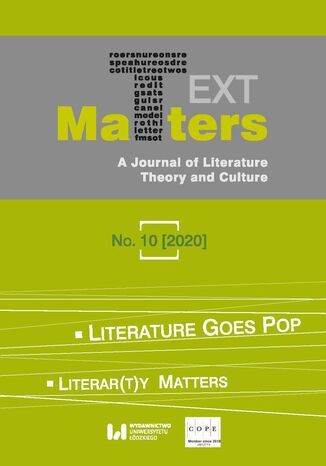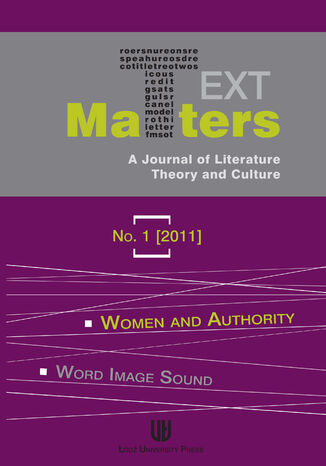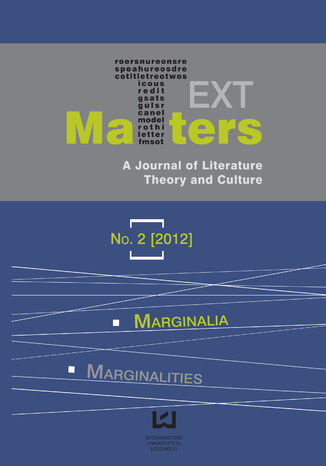Категорії
-
- Біткойн
- Ділова жінка
- Коучинг
- Контроль
- Електронний бізнес
- Економіка
- Фінанси
- Фондова біржа та інвестиції
- Особисті компетенції
- Комп'ютер в офісі
- Комунікація та переговори
- Малий бізнес
- Маркетинг
- Мотивація
- Мультимедійне навчання
- Нерухомість
- Переконання та НЛП
- Податки
- Соціальна політика
- Порадники
- Презентації
- Лідерство
- Зв'язки з громадськістю
- Звіти, аналізи
- Секрет
- Соціальні засоби комунікації
- Продаж
- Стартап
- Ваша кар'єра
- Управління
- Управління проектами
- Людські ресурси (HR)
-
- Architektura i wnętrza
- Безпека життєдіяльності
- Biznes i Ekonomia
- Будинок та сад
- Електронний бізнес
- Ekonomia i finanse
- Езотерика
- Фінанси
- Особисті фінанси
- Бізнес
- Фотографія
- Інформатика
- Відділ кадрів та оплата праці
- Для жінок
- Комп'ютери, Excel
- Бухгалтерія
- Культура та література
- Наукові та академічні
- Охорона навколишнього середовища
- Впливові
- Освіта
- Податки
- Подорожі
- Психологія
- Релігія
- Сільське господарство
- Ринок книг і преси
- Транспорт та спедиція
- Здоров'я та краса
-
- Офісні застосунки
- Бази даних
- Біоінформатика
- Бізнес ІТ
- CAD/CAM
- Digital Lifestyle
- DTP
- Електроніка
- Цифрова фотографія
- Комп'ютерна графіка
- Ігри
- Хакування
- Hardware
- IT w ekonomii
- Наукові пакети
- Шкільні підручники
- Основи комп'ютера
- Програмування
- Мобільне програмування
- Інтернет-сервери
- Комп'ютерні мережі
- Стартап
- Операційні системи
- Штучний інтелект
- Технологія для дітей
- Вебмайстерність
-
- Антології
- Балада
- Біографії та автобіографії
- Для дорослих
- Драми
- Журнали, щоденники, листи
- Епос, епопея
- Нарис
- Наукова фантастика та фантастика
- Фельєтони
- Художня література
- Гумор, сатира
- Інше
- Класичний
- Кримінальний роман
- Нехудожня література
- Художня література
- Mity i legendy
- Лауреати Нобелівської премії
- Новели
- Побутовий роман
- Okultyzm i magia
- Оповідання
- Спогади
- Подорожі
- Оповідна поезія
- Поезія
- Політика
- Науково-популярна
- Роман
- Історичний роман
- Проза
- Пригодницька
- Журналістика
- Роман-репортаж
- Romans i literatura obyczajowa
- Сенсація
- Трилер, жах
- Інтерв'ю та спогади
-
- Археологія
- Bibliotekoznawstwo
- Кінознавство / Теорія кіно
- Філологія
- Польська філологія
- Філософія
- Finanse i bankowość
- Географія
- Економіка
- Торгівля. Світова економіка
- Історія та археологія
- Історія мистецтва і архітектури
- Культурологія
- Мовознавство
- літературні студії
- Логістика
- Математика
- Ліки
- Гуманітарні науки
- Педагогіка
- Навчальні засоби
- Науково-популярна
- Інше
- Психологія
- Соціологія
- Театральні студії
- Богослов’я
- Економічні теорії та науки
- Transport i spedycja
- Фізичне виховання
- Zarządzanie i marketing
-
- Безпека життєдіяльності
- Історія
- Дорожній кодекс. Водійські права
- Юридичні науки
- Охорона здоров'я
- Загальне, компендіум
- Академічні підручники
- Інше
- Закон про будівництво і житло
- Цивільне право
- Фінансове право
- Господарське право
- Господарське та комерційне право
- Кримінальний закон
- Кримінальне право. Кримінальні злочини. Кримінологія
- Міжнародне право
- Міжнародне та іноземне право
- Закон про охорону здоров'я
- Закон про освіту
- Податкове право
- Трудове право та законодавство про соціальне забезпечення
- Громадське, конституційне та адміністративне право
- Кодекс про шлюб і сім'ю
- Аграрне право
- Соціальне право, трудове право
- Законодавство Євросоюзу
- Промисловість
- Сільське господарство та захист навколишнього середовища
- Словники та енциклопедії
- Державні закупівлі
- Управління
-
- Африка
- Альбоми
- Південна Америка
- Центральна та Північна Америка
- Австралія, Нова Зеландія, Океанія
- Австрія
- Азії
- Балкани
- Близький Схід
- Болгарія
- Китай
- Хорватія
- Чеська Республіка
- Данія
- Єгипет
- Естонія
- Європа
- Франція
- Гори
- Греція
- Іспанія
- Нідерланди
- Ісландія
- Литва
- Латвія
- Mapy, Plany miast, Atlasy
- Мініпутівники
- Німеччина
- Норвегія
- Активні подорожі
- Польща
- Португалія
- Інше
- Przewodniki po hotelach i restauracjach
- Росія
- Румунія
- Словаччина
- Словенія
- Швейцарія
- Швеція
- Світ
- Туреччина
- Україна
- Угорщина
- Велика Британія
- Італія
-
- Філософія життя
- Kompetencje psychospołeczne
- Міжособистісне спілкування
- Mindfulness
- Загальне
- Переконання та НЛП
- Академічна психологія
- Психологія душі та розуму
- Психологія праці
- Relacje i związki
- Батьківство та дитяча психологія
- Вирішення проблем
- Інтелектуальний розвиток
- Секрет
- Сексуальність
- Спокушання
- Зовнішній вигляд та імідж
- Філософія життя
-
- Біткойн
- Ділова жінка
- Коучинг
- Контроль
- Електронний бізнес
- Економіка
- Фінанси
- Фондова біржа та інвестиції
- Особисті компетенції
- Комунікація та переговори
- Малий бізнес
- Маркетинг
- Мотивація
- Нерухомість
- Переконання та НЛП
- Податки
- Соціальна політика
- Порадники
- Презентації
- Лідерство
- Зв'язки з громадськістю
- Секрет
- Соціальні засоби комунікації
- Продаж
- Стартап
- Ваша кар'єра
- Управління
- Управління проектами
- Людські ресурси (HR)
-
- Антології
- Балада
- Біографії та автобіографії
- Для дорослих
- Драми
- Журнали, щоденники, листи
- Епос, епопея
- Нарис
- Наукова фантастика та фантастика
- Фельєтони
- Художня література
- Гумор, сатира
- Інше
- Класичний
- Кримінальний роман
- Нехудожня література
- Художня література
- Mity i legendy
- Лауреати Нобелівської премії
- Новели
- Побутовий роман
- Okultyzm i magia
- Оповідання
- Спогади
- Подорожі
- Поезія
- Політика
- Науково-популярна
- Роман
- Історичний роман
- Проза
- Пригодницька
- Журналістика
- Роман-репортаж
- Romans i literatura obyczajowa
- Сенсація
- Трилер, жах
- Інтерв'ю та спогади
-
- Філософія життя
- Міжособистісне спілкування
- Mindfulness
- Загальне
- Переконання та НЛП
- Академічна психологія
- Психологія душі та розуму
- Психологія праці
- Relacje i związki
- Батьківство та дитяча психологія
- Вирішення проблем
- Інтелектуальний розвиток
- Секрет
- Сексуальність
- Спокушання
- Зовнішній вигляд та імідж
- Філософія життя
Text Matters: A Journal of Literature, Theory and Culture, No. 10 (2020)
Issue 10 (2020), entitled "Literature Goes Pop" and edited by the journal's editor-in-chief, Dorota Filipczak, revolves around the encounters between literary intertexts/conventions/genres and the visual/digital modes. Although the volume opens with a critical essay on Pamela Sue Anderson's philosophy, the next sixteen scholarly texts explore a wide range of topics demonstrating close ties between literature and widely understood pop culture: film, music videos, the blogosphere, biographies of iconic poets, the realm of cyberpunk, video games, and even memes, as demonstrated by the article on online humor responding to the global crisis caused by the COVID-19 pandemic. The next section, playfully named "Literar(t)y Matters," deals with the following subjects: sensorial aesthetics in modernist fiction, Hart Crane's and Yvor Winters's interactions with Emily Dickinson's poetic legacy, the cosmic sublime in Tracy K. Smith's Life on Mars, the depiction of racial issues in contemporary US in Claudia Rankine's Citizen. An American Lyric, the portrayal of 19th-century America in Frances Wright's works, Wallace Stevens's ties to philosophy, a morphogenetic perspective on intertextuality, Thomas William Robertson's well-made plays, and wartime propaganda and gender in Ahmad Mahmoud's The Scorched Earth.
Text Matters: A Journal of Literature, Theory and Culture, No. 1 (2011)
The first issue of Text Matters, published in 2011 and supervised by its editor-in-chief, Professor Dorota Filipczak, consists of two main sections. The first one, entitled "Women and Authority," contains thirteen texts exploring, in its editor's words, "the relationship between women and authority, vested in literary and philosophical texts." The authors come from different backgrounds: philosophy, theology, literature, while their articles concern the works of authors as varied as Michele Le Doeuff, Jane Urquhart, Laurence Sterne, Michele Roberts, Iris Murdoch, Virginia Woolf, Ian McEwan, Muriel Spark, Denise Levertov, Mary Dorcey, Carol Shields, Sylvia Plath, and Janet Frame. One of the analyses is devoted to the male/female relations in selected late medieval and early modern English texts. In the second section, named "Word/Image/Sound," there are six scholarly articles that cover the following topics: the oeuvre of Rudy Wiebe, close connections between artistry and religion, the postcolonial aspects of Michael Haneke's Hidden, the use of Ulster dialects in the poetry of Tom Paulin and Michael Longley, the role of dance in Brian Friel's Molly Sweeney, and, finally, the depiction of ambiguity and paradox in Ian McEwan's Saturday. Additionally, the volume includes an overview of book tributes to Professor Andrzej Kopcewicz, a look at the current state of American newspapers, a review of The Body (edited by Ilona Dobosiewicz and Jacek Gutorow), as well as two conversations: between Jared Thomas and Teresa Podemska-Abt, and Pamela Sue Anderson and Alison Jasper.
Text Matters: A Journal of Literature, Theory and Culture, No. 2 (2012)
The theme of issue 2 (2012) is "Marginalia/Marginalities" explored across literature, theatre, film, and cultural theory. It opens with a conversation between Dorota Filipczak and film director Krzysztof Zanussi, addressing cultural exchange and the challenges faced by European cinema. The section "Marginal Matters in Theatre and Film" examines how actors and marginalized spaces have been historically portrayed. Its contributors discuss 18th-century biographies that reframe actors as cultural agents, Samuel Beckett's self-translation of Waiting for Godot, nature as a marginal force in Terrence Malick's The Thin Red Line, and the rise of The Big Lebowski from cult obscurity to cultural significance. The authors in the "Margins in Fiction, Poetry and Literary Theory" section write about revisiting the Gothic genre, linking marginality to terror and the fantastic in fin de siecle fiction, Bruno Schulz's ex-libris art, J. H. Prynne's poetry, Edward Said's oeuvre, the Polish reception of Thomas Keneally, and the role of false quotations in Jim Crace's Arcadia. The final section, "Marginalized Identities," focuses on individuals in conflict with dominant cultural or social norms. Topics include Ira Daniel Aldridge's biography, gay masculinities in "Brokeback Mountain," female marginalization in dystopian fiction, and intercultural identity in works by Alice Walker, Louise Erdrich, Daniel Chacon, Michel Tournier, Monica Ali, Jhumpa Lahiri, and Aravind Adiga. The issue concludes with three reviews (of The Making of London: London in Contemporary Literature by Sebastian Groes; Simon Glendinning's Derrida; and Native Authenticity: Transnational Perspectives on Native American Literary Studies, edited by Deborah L. Madsen), as well as two interviews: between Fadia Faqir and Maria Assif, and Norman Ravvin and Krzysztof Majer.



